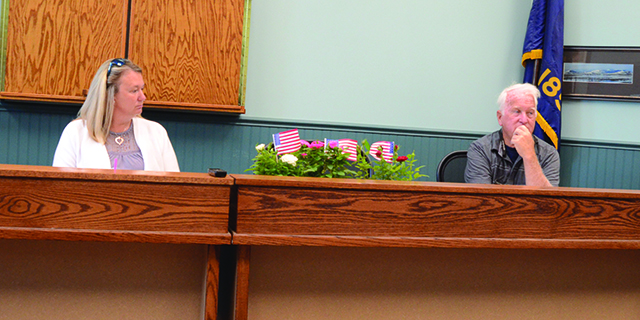Opt-out provision at SBHC not a myth
Published 2:57 am Wednesday, September 23, 2015
A small furor has erupted over Enterprise School District plans to place a student health center in an empty Enterprise classroom space, a reaction that school officials and the medical clinic involved apparently didn’t fully anticipate.
That’s unfortunate, because now unhealthy levels of fear and distrust are driving the public discourse. If the health center’s partnering organizations don’t allay these soon, a project they conceived mainly to serve kids who aren’t receiving needed care could be swept away in a wave of patron emotion.
Trending
We don’t mean to imply here that the plans shouldn’t receive a thorough public airing. All thoughtfully raised issues should be carefully addressed and resolved before deciding whether to proceed. Certain points of contention are less reasonable than others, though, and it appears there’s a real danger this project could fall victim to the spreading popularity of opposing all things government-funded, especially if they’re related to health care.
The controversy at hand isn’t difficult to understand. A number of parents, fearing their kids could gain access to birth control and other services without the parents’ knowledge, have inveighed against the school-based health center (SBHC). They view the center as an infringement on parental control. In response, the school district and Winding Waters Medical Clinic, the nonprofit that would operate the SBHC, are assuring parents there will be an “opt-out” provision allowing families to deny their own juvenile members access to the SBHC.
Promising this measure’s availability might have easily resolved the parental control concern but for one crippling circumstance — an absence of trust. Among at least a few of the SBHC’s opponents, the cogitative train to non-confidence runs something like this: The school district and clinic may or may not be utterly sincere about furnishing the non-participation alternative, but because this center receives state health care funding, local officials won’t be the true decision-makers. They therefore won’t be able to deliver on any such promise.
No doubt undergirded by the profound antipathy already cultivated toward Obamacare — of which the SBHC is not a product — local families can too readily conceive of mandates and penalties that tie everyone’s hands against ever pulling away, let alone fashioning the offering to fit our community’s choices.
Citizens would do well to bear in mind, however, that this local center isn’t a state or federal requirement, and accepting grant money for it in one year doesn’t lock anyone in to keeping the thing running indefinitely. So it would seem the buck indeed stops with school officials if patrons’ desired opt-out path inexplicably disappears. And in any unacceptable scenario, patrons could use the ballot box to change the district board and pull the plug on the center, if that’s what they really wanted. If they were very acutely miffed, they could start a recall against sitting board members to expedite the targeted change.
The point here is that local folks, not the state, wield ultimate authority in this matter, and we shouldn’t wildly exaggerate the strength of any strings that are attached to grant funds for an SBHC.
Trending
It might also lend us some comfort to remember the years before Obamacare, when the administration of President George W. Bush sought to expand the Children’s Health Insurance Program. Though launched during the Clinton years, CHIP fit well with Bush’s espoused philosophy of compassionate conservatism.
With a safeguard for voluntary parental control assured, we believe establishing the SBHC could also prove to be a compassionate choice. —RCR









